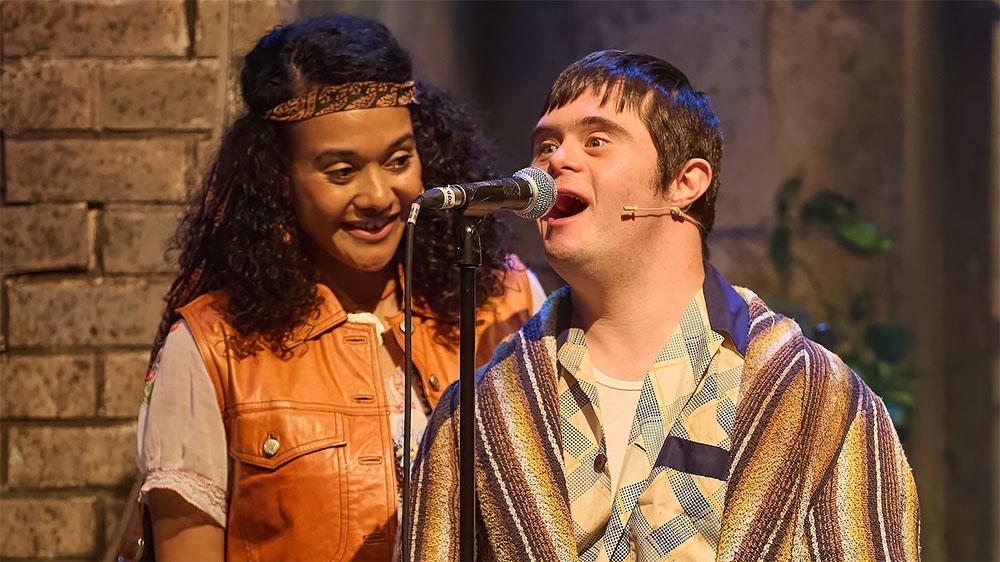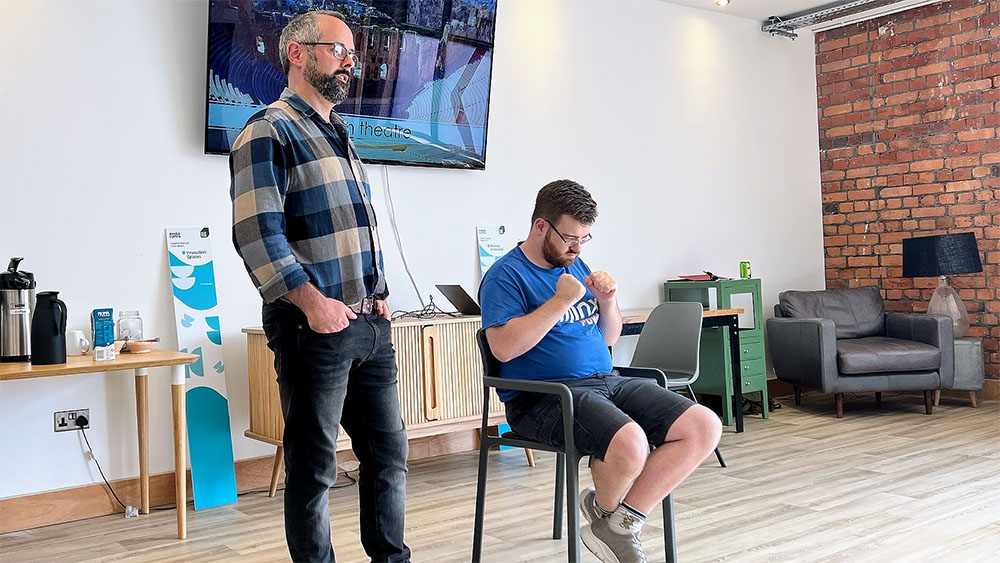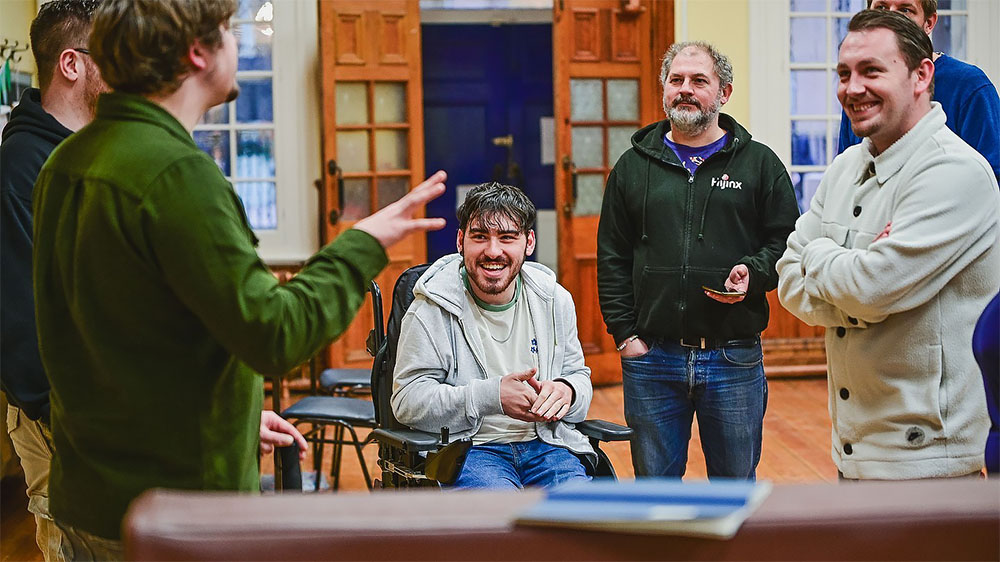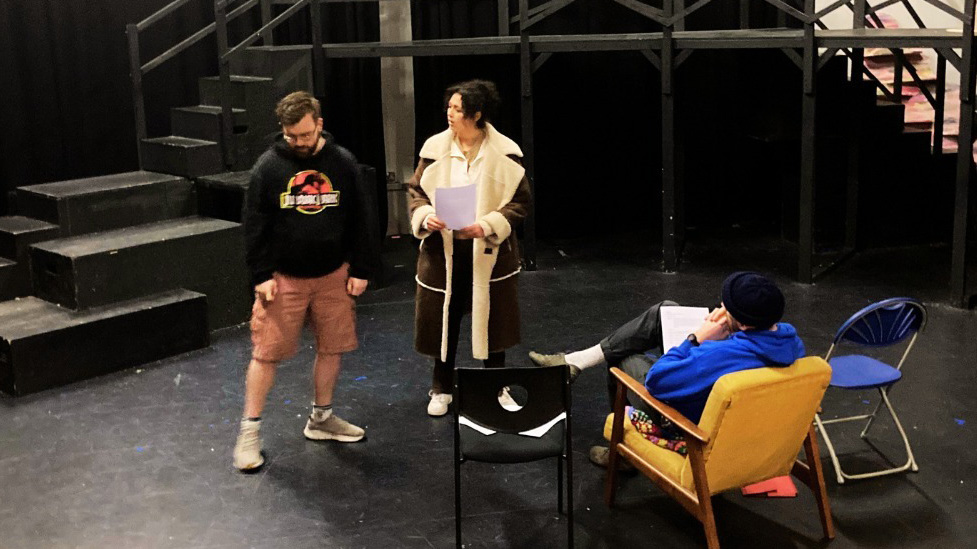Actors with learning disabilities and autism face various challenges in the working practices. How is one producer in Cardiff working to make the screen industry more inclusive?

In a room in Cardiff Central, actors and producers are siting in a circle for a day of workshops, involving communication exercises, forum theatre and role-play. There are flamboyant scarves, lots of knitwear and coffee cups scattered around the room as the bustle dies down and they take their seats. It is what you might expect when any group of thespians get together. But this group is different.
Among them, some have learning difficulties or autism, which makes it hard for them to progress in the world of theatre and film. In the forum theater session, disabled and non-disabled actors and producers simulate real-life scenarios show examples of bad communication practices in the workplace. A facilitator then guided them with better communication choices. It’s Dan McGowan’s mission to see much greater representation and inclusivity in the industry.
“Abled actors or producers in the industry don’t know how to go about working inclusively. They didn’t want to say the wrong thing or do the wrong thing.” said Dan McGowan, head of film at Hijinx theatre. “So, we thought maybe there’s something that we can do to help open up the film and TV industry a bit more and make people feel more confident about working inclusively and start providing more opportunities for people with learning disabilities.”
Hijinx theatre, a leading inclusive theatre, provide people with learning disabilities or autism opportunities in the screen industry and promotes an inclusive work environment. Its ReFocus workshops helped industry professionals adopt more inclusive working practices for people with disabilities and autism.

Actors with learning disabilities and autism face various challenges in the theatre and screen industries. The working process of production is not inclusive enough, according to McGowan. “It always starts with the script, and the actors don’t have any input into that. So, the scripts can be a bit artificial and difficult for the actor to get hold of,” he said.
Hijinx Theatre has tried to solve this by adopting a devised method for creating their work. “We don’t write a script and then cast it. We work with the actors on the ideas, and we do lots of customizations. Everyone has their own input into it,” said McGowan. “It also means it’s more authentic. The characters are more real. The stories are more surprising, different and involving.”
The fast pace and demanding schedules pose another challenge for them. “It’s also a fact that things are done very fast and at the very last minute. For example, we get lots of audition requests for our actors saying, ‘Can your actor Anna do a self-tape tonight and send it off to us tomorrow?’ We say no because she needs time to look at the script we’ve sent through, to process it, to set up, to have a go at it, and then to send it back. It’s not inclusive doing it that way,” McGowan said.
Therefore, the setup of the industry needs to change, according to McGowan. In addition, attitudes towards actors with learning disabilities and autism also need to change.

It is common for people to feel pity or empathy for these actors, which also forms a stereotype, according to McGowan. “Lots of actors that we work with get really fed up with the kind of, ‘oh, you’re doing so well’, the kind of well-meaning but patronizing approach that’s often taken,” he said. “They are really keen to just to be taken on their own terms as actors.”
People should realise these actors have really talents in the industry. “They don’t want to be seen as somebody with a learning disability who also happens to be an actor. They want to be seen as an actor who happens to have a disability,” he added.
In the screen industry, it is common for actors with disabilities to be cast as characters with disabilities. “When we see them on screen, very often the disability is the story,” said McGowan. “But what would be brilliant is if we start seeing people being cast in a role that doesn’t have anything to do with the fact that they have a learning disability.”
Actors with learning disabilities also aspire to play a variety of genres of characters. “In reality, loads of the actors are really kind of spiky and fun-loving and want to be action film stars. They want to be in stuff where they can swear, just like every other actor out there. They want to do the meaty roles, the powerful stuff, the fun stuff, the exciting stuff,” said McGowan.

Having inclusivity in the screen industry is important. “Arts as a whole, and the screen industries as part of the arts, should be representing everybody,” McGowan said.
The workplace can also become a more positive environment with more inclusive practices, according to McGowan. One actor from the Hijinx theatre, Justin Melhuish, worked on a character for a TV production. “Everybody on set, the producers, the crew, loved it when he was on set because he brought such positivity to it. Everyone factored in just taking a little bit more time, just thinking about communicating a bit more, so everyone benefited from it,” McGowan said.
Creating an inclusive screen industry requires efforts from everyone, both on stage and behind the scenes. “We shouldn’t just be looking at the actors. It should be anybody in any role anywhere in the TV or film production, whether you’re or in the marketing department or whatever. It’s just about making some small adjustments to your daily practice,” said McGowan.
